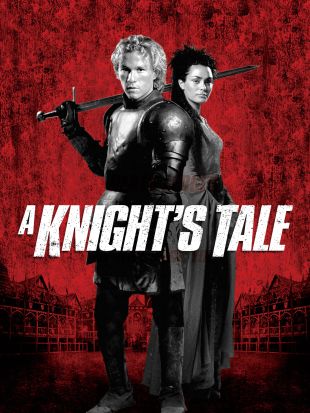
The summer of 2001 saw the birth of an unusual new hybrid -- the period film featuring modern-day music, ideas, and catch phrases. In both instances (director Baz Luhrmann's Moulin Rouge [2001] and this medieval fantasy from writer/director Brian Helgeland), the device works. That's probably because both filmmakers fought the powers that be to make it so, relying on the courage of their convictions that they could make it as giddily cool as they envisioned it being. Cool it is, especially in the case of Helgeland's fun-filled frolic, a goofball mishmash of influences ranging from Braveheart (1995) to baseball, Rob Roy (1995) to the rock & roll of AM radio in the 1970s. Sure, the sudden, jarring appearance of "the wave" during a jousting tournament or David Bowie's "Golden Years" during a medieval ball requires some rewiring of one's mental circuitry, and there will be those who can't make the required intellectual leap. There may even be many who don't want to spend a feature-length film's running time with their disbelief fully disengaged. What's groundbreaking or fresh in art or entertainment, however, is often pleasing to those expecting the status quo. It's also often a trail mix of familiar elements jumbled into an inventive new combination, and A Knight's Tale meets that basic requirement. Performances here are not really the point, but Heath Ledger, newcomer Shannyn Sossamon, and the glowering Rufus Sewell are perfectly acceptable, cheekbone-blessed leads. The real standout here is Paul Bettany as the naked, addictive, and fiendishly talented Geoffrey Chaucer, a mirthfully kick-in-the-pants comic character similar to the one that made Rhys Ifans a minor star after Notting Hill (1999). Embracing anachronism is an artistic philosophy that isn't likely to work in most cases, and it will doubtlessly be imitated endlessly, and disastrously so. In 2001, however, it was the "new thing" in Hollywood cinema and an enjoyable development in a summer of particularly boring junk.
